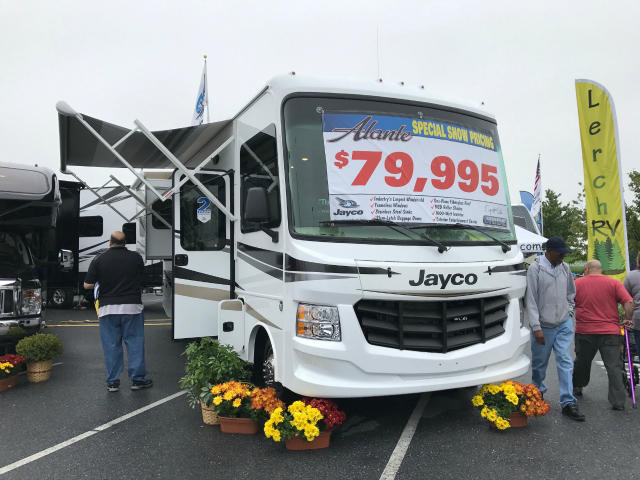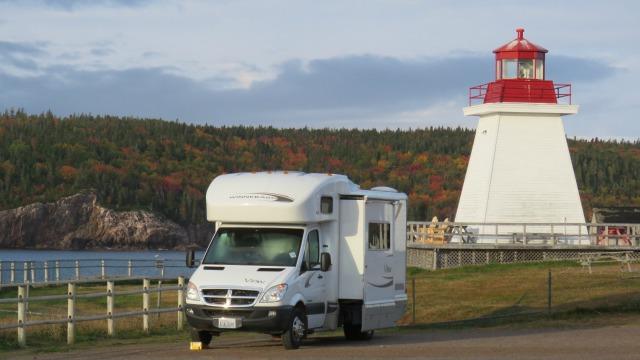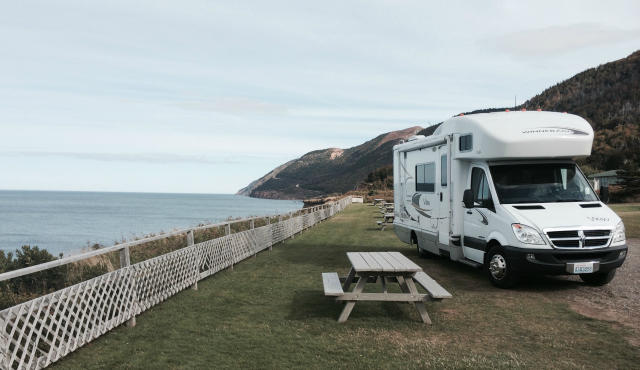The Weekly Driver Podcast has reached its 25th episode, and we’re cruising toward highway speed. Our current broadcast, our most popular, investigates the complex issues in the RV industry.
Sales have dramatically increased as more consumers can no longer afford traditional housing or are seeking a mobile lifestyle. But campgrounds are overcrowded, and retail box store parking lots, where more RVers live, are often unkempt.
Further, the RV industry has a quality control crisis.

Our podcast guest, Chuck Woodbury, editor and publisher of RVTravel.com, discusses his concerns. He believes the RV industry doesn’t care about the quality of its products. Too many buyers have faced major problems and they don’t have a consumer organization from which to get help.
Woodbury is also troubled by an industry that offers loans with far longer payment plan options than the car industry. The enticingly low rates often backfire when consumers can’t get assistance when their RVs malfunction or if they owe too much when their lifestyle plans change.
TheWeeklyDriver.com has received has several email comments from readers regarding the dilemmas of the RV industry We’ve listed three below. Several readers also asked what can be done about the crisis. Woodbury responds at the bottom of the post.

We’ve also linking to The Weekly Driver podcast on the RV crisis, here: RV industry in chaos.
Reader Ronald (burdgelaw.com):
“(Chuck) Woodbury is not alone. Other independent experts I deal with have concluded likewise. Does anyone think overall quality in the RV industry has gone up since the crash of 2007-2009?
“There is no one pushing to pass an RV lemon law, not generally and not with specific standards. Not on the federal level, not in any state.
“Meanwhile the industry is still pushing against it. I was watching in the 1980s and have been ever since. Still, not too long ago, the national attorneys general association was pushing RV lemon law standards, but they gave up as conservative do-nothing politics took over one state House after another during the next two decades.
“Meanwhile, the crash of 2007–2008 caused the industry to look for places to cut corners and still make a profit. Quality was the obvious first target. Quickly, it was business as usual all along after that for the Rv industry. And defects as usual for buyers.
“The industry touted long and hard the shakedown cruise idea, which allowed it to deliver new RVs laden with latent defects for the buyer to discover on their first trip out. Poor quality meant corporate savings, bigger profits, and putting off to tomorrow the warranty repair costs of today. The RV-loving or entranced public put up with bad quality out of a forgiving true love for the lifestyle, and the industry pushed poor quality to the max, trading long-term quality for short-term profit, time and again.

“And cutting corners in construction bled into other areas of the industry, in the continuing lustful pursuit of profits. Warranty claim reviews got really tight, not that the industry as a whole was ever loose with ready approval of dealer claims processing. And customer calls for help started getting the same poor quality handling that the RVs got in the build process.
“So where does poor quality and sloppy claims processing lead? Ask Gulfstream after a South Bend Jury verdict last year that exceeded the cost of one of their defective RVs. The manufacturer they ended up paying multiples of six figures to settle a $125,000 RV case after the jury let them know what they thought of poor quality and the customer runaround.
“Ask Forest River after a Hamilton Ohio jury returned its $250,000 verdict to an 80-year-old widow who bought a lemon $43,000 RV.
“There are lots of decent, honest and hard-working people at the RV factories in Indiana, trying to do their job right in the face of an industry that seems to have decided that getting the money in their corporate pocket, and keeping it there, trumps all else.
“The industry seems to have forgotten that you can fool some of the buyers all of the time and all of them some of the time, but you can’t fool all of them all of the time.

“Has every RV company collectively decided just to make a buck and quality be damned? That’s what it looks like from my law office where since 1985 I have represented consumers who get stuck with a bad RVs, and I have more cases than ever.
“Please, RVIA, build them right. When the manufacturers start building them right, I’ll go back to writing wills. Until then, I’m just too busy.”
Reader Frank:
“This issue is the biggest reason that I have yet to jump into the market. I have multiple friends who purchased brand new class As and one of them could not even get home on his maiden voyage.
“The local dealer would not even talk to him and this very expensive motor coach sat idle for 5 1/2 months before he finally took it to a 3rd party RV repair shop to get it fixed. Fortunately (my friend) is a doctor and could afford to pay for the repairs as well as sue the original dealer and manufacturer.
“My second friend spent over $250k and had so many problems he promptly put it up for sale and is likewise suing the manufacturer. Talk about a ‘death spiral’of an industry.”
Reader Pat:
“So, what can be done about this issue? We own a lemon we bought from CW. Class A diesel pusher. Has been in shop more than we have had it out camping. Very frustrating.”
Chuck Woodbury, publisher of RVTravel.com:
“That’s the big question: what can be done? Getting the word out is what I know best. So for me, I need to do what I can to raise awareness among RV makers to do a better job. Without public outcry, they will keep doing what they’re doing, turning out way too many defective products.”
Article Last Updated: February 13, 2018.
